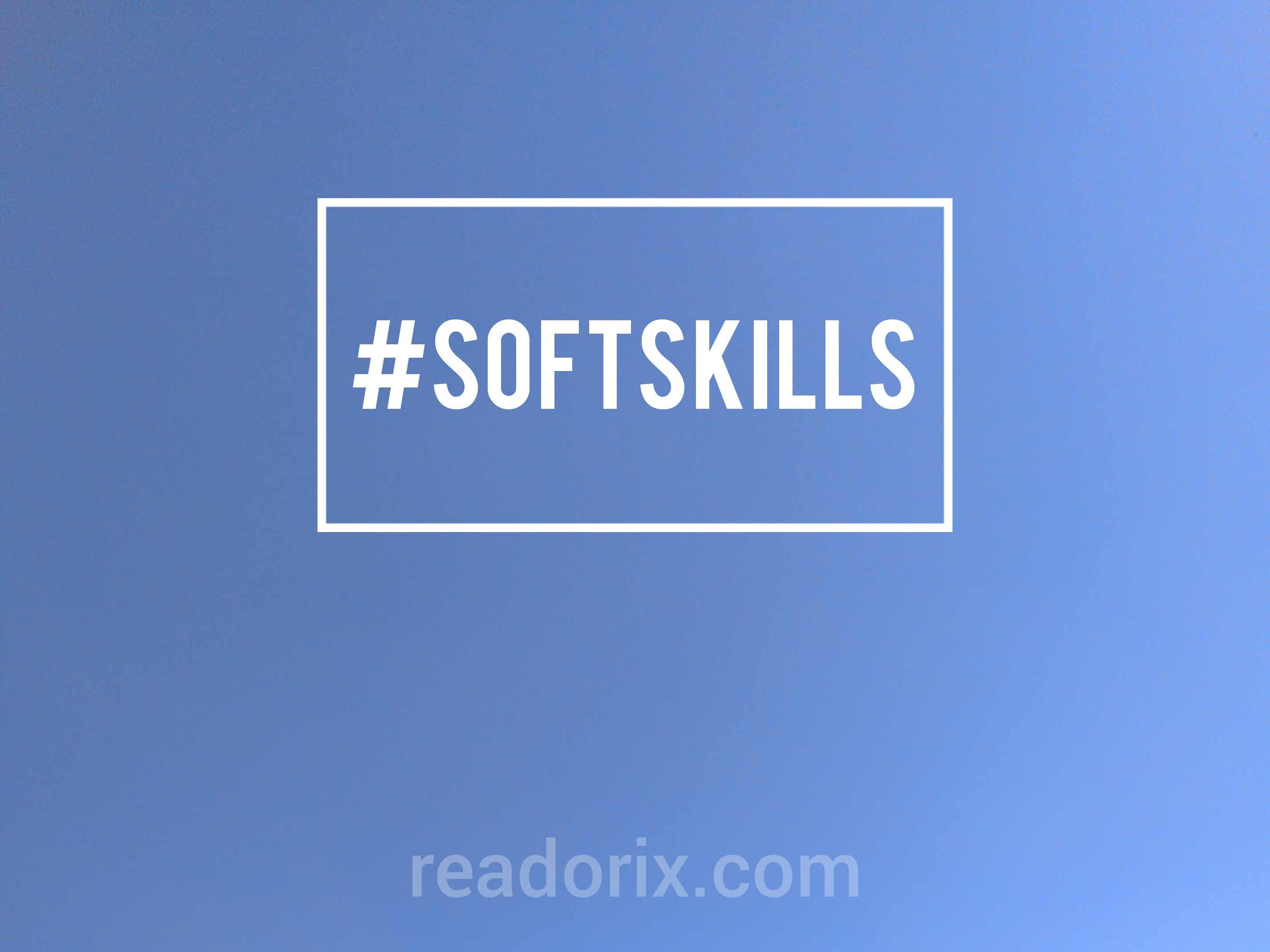
Strategies to develope your soft skills
- 29 Jul 2024
- 27 Views
In today's dynamic and increasingly interconnected world, soft skills have become indispensable. Unlike hard skills, which refer to specific technical knowledge and abilities, soft skills encompass the personal attributes and interpersonal skills that facilitate effective communication and collaboration. These include traits such as empathy, teamwork, and adaptability. While hard skills can often be measured and quantified, soft skills are more subtle and nuanced, yet they play a crucial role in determining career success and personal fulfillment.
What Are Soft Skills?
Soft skills are the personal qualities and interpersonal abilities that influence how effectively you interact with others. They are sometimes called "people skills" or "interpersonal skills" and include attributes such as communication, leadership, problem-solving, and emotional intelligence. Unlike technical skills that are specific to a job role, soft skills are universally applicable across various professions and life situations.
Why Are Soft Skills Important?
Enhanced Communication: Soft skills improve how you express your thoughts and ideas, ensuring clearer and more effective interactions.
Better Teamwork: They foster collaborative relationships and smoother team dynamics, essential for project success.
Increased Adaptability: Soft skills help you navigate change and overcome challenges with resilience and flexibility.
Improved Conflict Resolution: They aid in resolving disputes constructively and maintaining positive relationships.
Greater Career Advancement: Soft skills often lead to better job performance, job satisfaction, and opportunities for advancement.
With the significance of soft skills established, let’s delve into practical strategies to develop and enhance these essential competencies.
Strategies to Develop Your Soft Skills:
1. Practice Active Listening
Active listening involves fully focusing on the speaker, understanding their message, and responding thoughtfully. This means not just hearing words but absorbing the content and context. Engage in conversations with a mindset of genuinely understanding the other person's perspective. This practice enhances communication and demonstrates respect, building stronger personal and professional relationships.
2. Engage in Self-Reflection
Self-reflection is crucial for understanding your own soft skills and identifying areas for improvement. Regularly take time to review your interactions and decisions. Reflect on questions like, “How did I handle that situation?” and “What can I learn from this experience?” This introspective approach helps in recognizing patterns and areas for growth.
3. Seek Feedback
Constructive feedback provides valuable insights into your soft skills. Don’t wait for formal reviews—actively seek input from colleagues, mentors, or friends. Be open to criticism and use it constructively to refine your skills. Feedback helps you become more aware of how others perceive your actions and interactions.
4. Take Public Speaking Classes
Public speaking is a vital soft skill that boosts confidence and communication clarity. Enroll in public speaking courses or join organizations like Toastmasters. These platforms offer practice and constructive feedback, helping you become a more effective and persuasive communicator.
5. Develop Empathy
Empathy involves understanding and sharing the feelings of others. To cultivate empathy, actively listen to people’s concerns and try to understand their perspectives. Showing genuine compassion and support strengthens your relationships and helps in resolving conflicts more effectively.
6. Participate in Team Activities
Engaging in team activities helps you learn to work harmoniously with others. Whether it's a group project at work or a team sport, these experiences teach you about collaboration, leadership, and teamwork. They also provide practical scenarios for developing interpersonal skills.
7. Improve Your Emotional Intelligence
Emotional Intelligence (EQ) is crucial for managing your emotions and understanding others' emotions. Enhance your EQ by practicing self-awareness, self-regulation, and empathy. Developing these skills helps you navigate social complexities and build strong relationships.
8. Read and Learn Continuously
Staying informed about soft skills through books, articles, and online resources can provide new strategies and insights. Read about topics such as leadership, communication, and emotional intelligence to keep your skills sharp and up-to-date.
9. Role-Playing Scenarios
Role-playing helps you practice responses to various situations in a controlled setting. It’s an effective way to improve conflict resolution, negotiation, and customer service skills. By simulating real-life scenarios, you can build confidence and refine your approach.
10. Network Actively
Networking connects you with people from diverse backgrounds and experiences. Attend industry events, join professional organizations, and engage with individuals from different fields. Networking not only improves your social skills but also opens doors to new opportunities.
11. Set Personal Goals
Establish clear, achievable goals for improving your soft skills. For example, aim to enhance your public speaking by giving regular presentations or improve your teamwork by leading a group project. Setting specific goals helps you track progress and stay motivated.
12. Mentor or Coach Others
Mentoring or coaching others helps you refine your leadership and communication skills. Guiding someone through their development provides valuable insights into your own strengths and areas for growth. It also enhances your ability to convey information effectively.
13. Handle Stress Effectively
Managing stress is essential for maintaining a positive outlook and effective communication. Develop stress-relief techniques such as mindfulness, meditation, or exercise. A calm and composed demeanor enables you to handle challenges and conflicts more effectively.
14. Work on Time Management
Effective time management enhances productivity and reduces stress. Use tools like planners, to-do lists, and time-tracking apps to organize your tasks and manage your schedule efficiently. Good time management reflects positively on your organizational skills.
15. Be Adaptable
Flexibility is a key soft skill that helps you navigate change and uncertainty. Embrace new ideas and methods, and be willing to adjust your approach as needed. Adaptability enables you to thrive in diverse environments and situations.
16. Cultivate a Positive Attitude
A positive attitude influences how you interact with others and approach challenges. Focus on solutions rather than problems and maintain optimism even in difficult situations. Positivity is infectious and contributes to a more collaborative and supportive work environment.
17. Develop Conflict Resolution Skills
Address conflicts with a calm and constructive approach. Practice active listening, understand different viewpoints, and work towards solutions that benefit all parties involved. Effective conflict resolution strengthens relationships and fosters a positive atmosphere.
18. Enhance Your Writing Skills
Clear and effective writing is crucial for communication. Work on improving your writing skills by crafting concise emails, reports, and presentations. Strong writing skills help you convey ideas accurately and professionally.
19. Attend Workshops and Seminars
Workshops and seminars offer practical training and insights into various soft skills. Participate in events related to communication, leadership, and emotional intelligence. These sessions provide hands-on experience and opportunities to network with others.
20. Be Patient and Persistent
Developing soft skills is a continuous journey that requires patience and persistence. Progress may be gradual, but consistent effort and a willingness to learn will lead to significant improvement over time. Embrace the process and celebrate your growth along the way.
By implementing these strategies, you can enhance your soft skills and achieve greater success in both your personal and professional life. Remember, soft skills are not only about improving how you interact with others but also about becoming a more effective and empathetic individual. Keep striving for growth and embrace the journey of self-improvement.